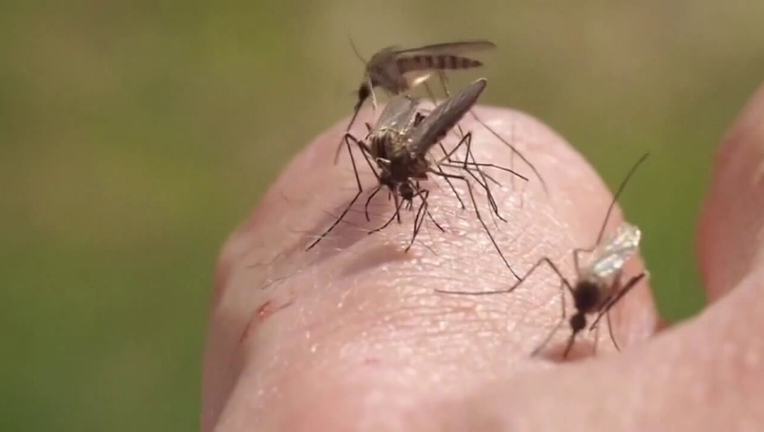West Nile virus: Horse in MN dies after contracting disease

West Nile Virus is spreading nationwide, with nearly 300 human infections reported across 33 states, including Minnesota. (FOX 9)
TODD COUNTY, Minn. (FOX 9) - A horse in Todd County, Minnesota, is dead after it contracted West Nile virus (WNV) in August, marking the first confirmed equine case in Minnesota this year.
READ MORE: West Nile virus deaths reported in the US: What to know
What we know
Officials from the Minnesota Board of Animal Health said the horse, an unvaccinated 2-year-old Belgian colt, was "unable to rise" on the morning of Aug. 26 and died that same afternoon.
The horse's owner told state officials three horses from a neighbor's farm also died a few days before his colt got sick. Though the other horses reportedly had similar symptoms, it has not been confirmed if they died from West Nile virus.
Another case of the virus was reported in Scott County when an alpaca tested positive at the end of August.
READ MORE: West Nile Virus found in Minnesota mosquitoes, 3 counties affected so far
Birds are the primary host of the virus, and it circulates between infected birds and mosquitoes. Infected mosquitoes then spread the virus to people or other animals.
Symptoms of West Nile virus can include inflammation of the brain and spinal cord.
The Board of Animal Health adds that infected horses may or may not show neurological symptoms and may recover completely. This is more likely if the horses are vaccinated annually.
READ MORE: Wisconsin West Nile virus: 2 dead, 1 hospitalized so far
How to reduce mosquitoes
State officials shared guidance on how animal owners can reduce nearby mosquito populations and limit the spread of West Nile virus.
That guidance includes:
- Changing water in drinking troughs every week.
- Mowing long grass.
- Draining stagnant water puddles.
- Removing items mosquitoes use for breeding grounds, like old tires and tin cans.
- Placing and maintaining screens over windows and stable doors.
- Using mosquito repellents to protect horses and people from mosquito bites.
What they're saying
Senior Veterinarian in Charge of the Board of Animal Health's Equine Program Dr. Heather Damico shared the following statement:
"Taking action to vaccinate your animals is the best way to protect them from WNV. We often see reports of cases in horses that are either unvaccinated or under vaccinated, which means they didn’t receive their annual booster shot. Vaccines can prevent infection or reduce severity of disease if the horse gets sick. Please vaccinate horses according to your veterinarian’s recommendation."

